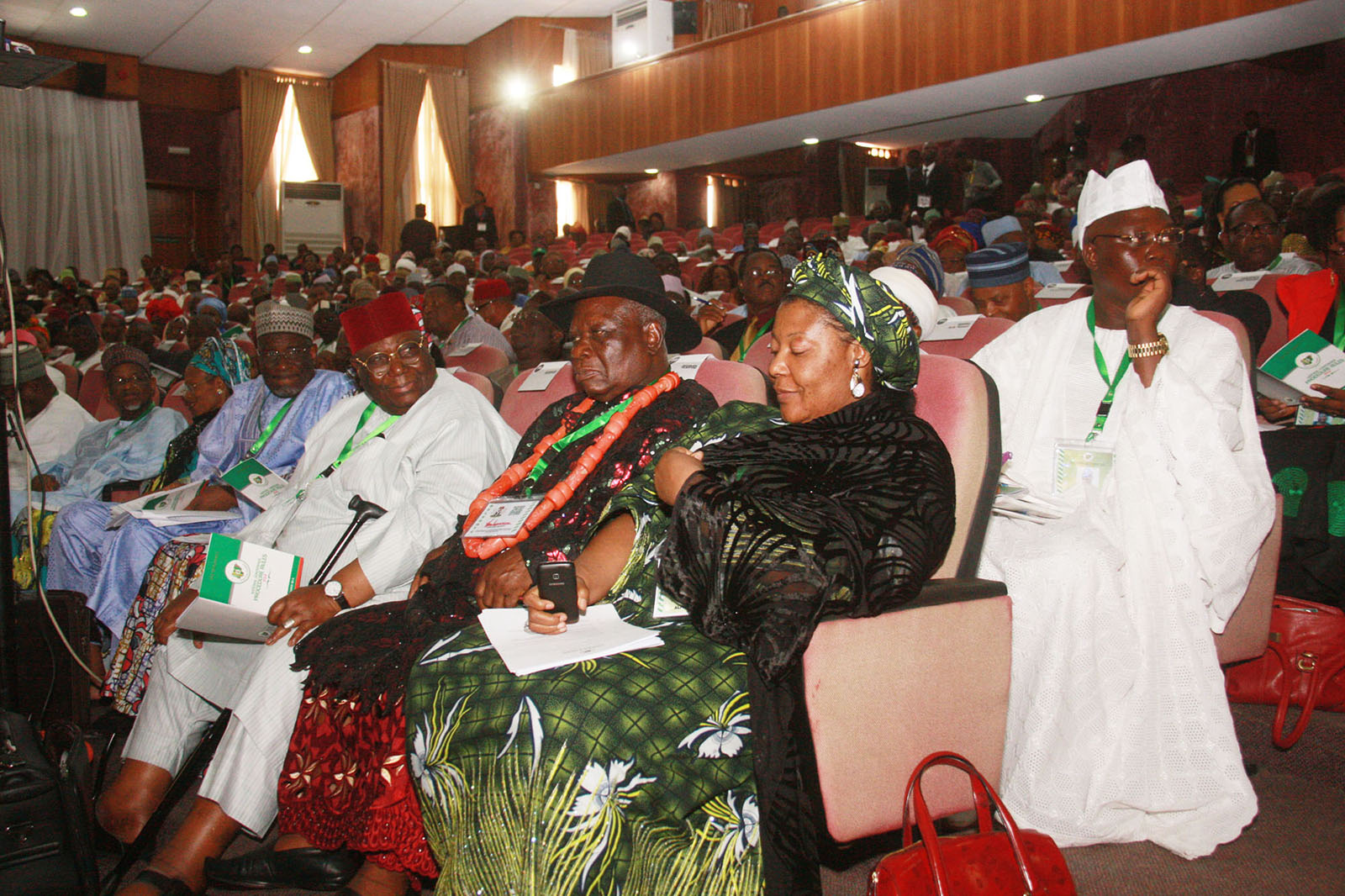The controversy that has often trailed government’s move to remove subsidy as petroleum products was reignited yesterday at the National conference when delegates broke into opposing camps arguing for and against a proposal to remove the subsidy.
In the same vein, the conference failed to resolve the outstanding issues regarding the bid to expunge the Land Use Act from the 1999 Constitution and the scrapping of the Pilgrims Welfare Boards.
Another issue that attracted the delegates was the management of the economy in relation to how the country can ensure the early passage of budgets as well as granting of sustainable import waivers.
After preliminary exchanges, delegates began debates on the report of the committee on Public Finance and Revenue, presented by Senator Adamu Alero.
The committee had recommended among others, the removal of fuel subsidy, unsustainable import waivers, transfer of 50 per cent of funds from excess crude to the Sovereign Wealth Fund and splitting of the Accountant General’s Office.
However, it was the report on the removal of fuel subsidy that generated a lot of debate from delegates both for and against it.
While some of the delegates blamed the problem of fuel subsidy on corrupt officials in the sector, others heaped the blame on the lack of monitoring by the security agencies on the implementation of the subsidy regime.
Orok Etuk Duke expressed support for the removal of oil subsidy, saying nobody in Cross River will protest against its removal since they have never bought fuel at the subsidised rate.
“If you are removing subsidy let us also remove the monopoly from the importation of kerosene and liberalise it for all to participate,” he said.
King Alfred Diette-Spiff spoke in support of the removal of the subsidy, saying the corruption in the subsidy regime is growing bigger by the day.
He charged former top government functionaries who are delegates at the conference to use the opportunity they have now to correct the ills of the past by voting for the removal of fuel subsidy.
Prof. Okon said subsidy payments have not satisfied the interest and well being of majority of Nigerians. He said the country must stop living in self-denials and stop fueling scams by continuing the subsidy regimes.
Sergeant Awuse supported the removal of fuel subsidy, saying that the conference must be seen to be protecting the interests of majority of Nigerians
Opposing the move, a Labour delegate, Isah Aremu said when compared with other oil producing countries, Nigerians pay outrageous prices on fuel, adding that the issue of proposal for subsidy removal should be dropped from the report of the conference.
Another delegate representing the Speakers forum, Hon. Anayo Nnebe urged the delegates to rise up and write their names in gold by supporting the removal of petroleum subsidy for the reason that it is not in the interest of Nigerian masses.
Constitutional rights lawyer, Chief Mike Ozoekhome, opposed the removal of subsidy on petroleum products, saying we should not be talking about removing subsidy on a product you produce”.
He said there was nothing called subsidising fuel. “You do not subsidise a product you have, neither does one subsidise himself,” he said.
In his contribution, Abubakar Sadiq Muhammed and a former permanent secretary in the Ministry of Petroleum Resources drew applause from fellow delegates with his articulation of the history of the present problems afflicting the subsidy regime.
A delegate from Rivers State, Mr. Atedo Peterside suggested that rather than total subsidy removal, Nigeria could alter the way it applied the fuel subsidy by identifying every Nigerian and then applying the subsidy in such a manner that the actual targets of the subsidy would be reached.
Peterside said what is happening now is that the government is subsidising mainly the rich and the multinational companies with several fleets of cars to the detriment of the poor and needy.
On the in resolved issue of the Land Use Act, the secretariat yesterday reported to the delegates of a new proposal on the issue.
The proposal stated that the Act would remain in the constitution in the concurrent list to be domesticated by states, which wants it while states, which did not want it, can leave.
Also on the scrapping of religious welfare pilgrim’s board, it was reported that no agreement had been reached on the matter.
Alhaji Buba Galadima, who is a member of the committee to reconcile the issue, said there was no meeting of the committee to formally discuss stalemated issue of scrapping of pilgrims’ board.
Akinyemi said there was not committee formally set up by the secretariat but that some people were hand-picked to consult on the matter and that since it appeared that no break-through had been reached, the issue will still be put on bracket.
Attempt to broker a consensus on the disagreeable pilgrims board matter by Ozoekhome was shot down by delegates through a voice vote.
His motion for the establishment of religious equity commission and for a provision to make establishment of pilgrims’ welfare board optional for states failed to secure majority support.
At the end, Akinyemi ruled that discussions on the proposed amendments to Land Use Act and pilgrims board be deferred further







